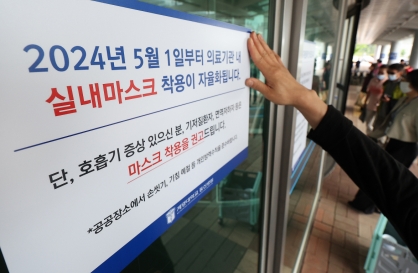Merry-making is in order for December, the season of Christmas, Hanukkah and other glad tidings. But Cho Song-yeon, a 32-year-old employee in the manufacturing industry, won’t be doing anything special because she’ll be working on Christmas Eve.
A handful of local companies, including a couple of Samsung affiliates, will be giving employees a day off before Christmas, but at the majority of Korean firms, it will be business as usual right up until Lunar New Year’s in February.
“It didn’t even occur to me that I should take time off for Christmas because everyone else at my team and my company will all be working,” said Cho.
But for many employees at firms based overseas ― especially Europe or the U.S. ― the end of the year is when they prepare to take time off to refresh and get away.
Christmas, therefore, becomes the season when the cultural contrast between Korean firms and their foreign counterparts becomes most sharply apparent.
OECD figures show that in 2010, Koreans worked 20 percent longer than the OECD average.
This year, the contrast will be even more emphasized, industry sources said, since most Korean companies are expected to tighten their leash on employees to navigate through sluggish domestic and global economic conditions.
Hyundai Motor, for instance, said team directors will be given an extra day off this month to “get refreshed,” but it’s unlikely for many to take advantage of the system, which does not apply to executives.
The situation is pretty much the same for other local companies.
“There’s nothing special about the end of the year,” an LG spokesperson said.
For the staff of French and German companies, the situation is almost completely the reverse.
“Most of the French staff go home just before Christmas and get back to Korea in the middle of January,” said Lee Yoo-jin, a representative for the French-Korean Chamber of Commerce and Industry.
She added that it could be different for the Korean employees at the French companies, as they are bound by local or internal labor laws, whereas the French employees, at least those of who are stationed here temporarily, abide by the French rules.
Americans are no exception in year-end holidays, according to the American Chamber of Commerce, which said that most American executives would be out of town starting in the third week of December, up until early or mid-January.
“It does depend on the industry and company culture, but most of the American staff goes away for the holidays, and sometimes the Korean workers are allowed some days off as well,” said Bae Hong-soo, the chamber spokesman.
Executives at Germany-based Mercedes Benz fly home in December to refresh and prepare for the new year. The company’s German headquarters is also closed down for that period, so it’s not exactly efficient to keep employees at the mill.
However, companies that have succeeded ― perhaps too well ― in localization may go a different route.
BMW is so “Koreanized” that employees don’t expect to leave on holidays. The CEO Kim Hyo-joon goes away for about a week a year, and that’s all, BMW Korea said.
The reason that the long holidays work for some of the overseas-based companies, according to Lee of the French chamber, is because anyone who is planning a long-term leave must make sure there is another person ready to step in. As long as this is possible, then all employees are eligible for the holidays coming their way.
Considering that the productivity of Korean workers stood at a lowly 23rd place out of 34 OECD member countries ― a contrast to the fact that Koreans work 20 percent more than their OECD counterparts ― perhaps it’s time that local firms took a page from their foreign colleagues, hard times or not.
By Kim Ji-hyun and Lee Ji-yoon
(jemmie@heraldcorp.com) (jylee@heraldcorp.com)
A handful of local companies, including a couple of Samsung affiliates, will be giving employees a day off before Christmas, but at the majority of Korean firms, it will be business as usual right up until Lunar New Year’s in February.
“It didn’t even occur to me that I should take time off for Christmas because everyone else at my team and my company will all be working,” said Cho.
But for many employees at firms based overseas ― especially Europe or the U.S. ― the end of the year is when they prepare to take time off to refresh and get away.

Christmas, therefore, becomes the season when the cultural contrast between Korean firms and their foreign counterparts becomes most sharply apparent.
OECD figures show that in 2010, Koreans worked 20 percent longer than the OECD average.
This year, the contrast will be even more emphasized, industry sources said, since most Korean companies are expected to tighten their leash on employees to navigate through sluggish domestic and global economic conditions.
Hyundai Motor, for instance, said team directors will be given an extra day off this month to “get refreshed,” but it’s unlikely for many to take advantage of the system, which does not apply to executives.
The situation is pretty much the same for other local companies.
“There’s nothing special about the end of the year,” an LG spokesperson said.
For the staff of French and German companies, the situation is almost completely the reverse.
“Most of the French staff go home just before Christmas and get back to Korea in the middle of January,” said Lee Yoo-jin, a representative for the French-Korean Chamber of Commerce and Industry.
She added that it could be different for the Korean employees at the French companies, as they are bound by local or internal labor laws, whereas the French employees, at least those of who are stationed here temporarily, abide by the French rules.
Americans are no exception in year-end holidays, according to the American Chamber of Commerce, which said that most American executives would be out of town starting in the third week of December, up until early or mid-January.
“It does depend on the industry and company culture, but most of the American staff goes away for the holidays, and sometimes the Korean workers are allowed some days off as well,” said Bae Hong-soo, the chamber spokesman.
Executives at Germany-based Mercedes Benz fly home in December to refresh and prepare for the new year. The company’s German headquarters is also closed down for that period, so it’s not exactly efficient to keep employees at the mill.
However, companies that have succeeded ― perhaps too well ― in localization may go a different route.
BMW is so “Koreanized” that employees don’t expect to leave on holidays. The CEO Kim Hyo-joon goes away for about a week a year, and that’s all, BMW Korea said.
The reason that the long holidays work for some of the overseas-based companies, according to Lee of the French chamber, is because anyone who is planning a long-term leave must make sure there is another person ready to step in. As long as this is possible, then all employees are eligible for the holidays coming their way.
Considering that the productivity of Korean workers stood at a lowly 23rd place out of 34 OECD member countries ― a contrast to the fact that Koreans work 20 percent more than their OECD counterparts ― perhaps it’s time that local firms took a page from their foreign colleagues, hard times or not.
By Kim Ji-hyun and Lee Ji-yoon
(jemmie@heraldcorp.com) (jylee@heraldcorp.com)
-
Articles by Korea Herald




![[Music in drama] Rekindle a love that slipped through your fingers](http://res.heraldm.com/phpwas/restmb_idxmake.php?idx=644&simg=/content/image/2024/05/01/20240501050484_0.jpg&u=20240501151646)

![[New faces of Assembly] Architect behind ‘audacious initiative’ believes in denuclearized North Korea](http://res.heraldm.com/phpwas/restmb_idxmake.php?idx=644&simg=/content/image/2024/05/01/20240501050627_0.jpg&u=20240502093000)



![[KH Explains] Will alternative trading platform shake up Korean stock market?](http://res.heraldm.com/phpwas/restmb_idxmake.php?idx=644&simg=/content/image/2024/05/01/20240501050557_0.jpg&u=20240501161906)








![[Today’s K-pop] Stray Kids go gold in US with ‘Maniac’](http://res.heraldm.com/phpwas/restmb_idxmake.php?idx=642&simg=/content/image/2024/05/02/20240502050771_0.jpg&u=)